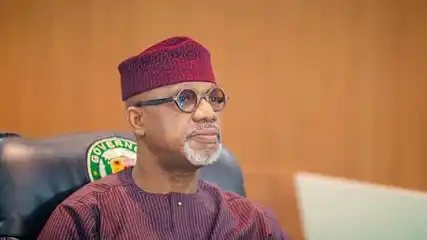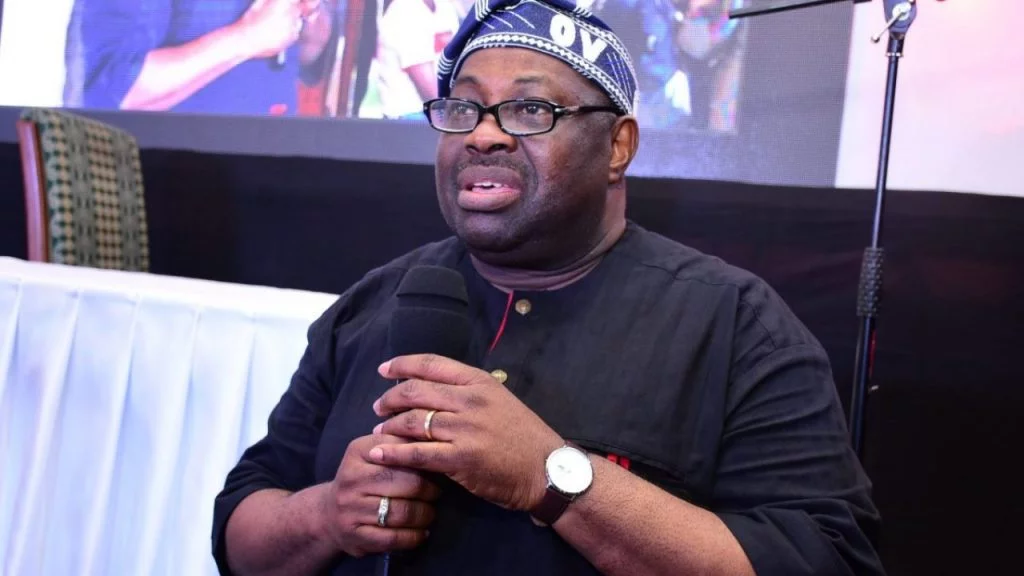Deyemi Okanlawon: Why Nollywood Filmmakers Are Ditching Cinemas for YouTube

Prominent Nollywood actor and producer Deyemi Okanlawon has shed light on the growing trend of Nigerian filmmakers shifting their focus from cinemas to YouTube as a primary platform for film distribution.
Speaking during a recent appearance on Rubbin’ Minds, a talk show aired on Channels Television, Okanlawon explained that the move is largely driven by economic realities and the desire for creative freedom.
According to him, many independent filmmakers are frustrated with the structural challenges of Nigeria’s cinema industry, including high entry barriers, disproportionate revenue sharing, and limited access to screen time.
“I’ve made over ₦130 million at the box office, yet it wasn’t enough to cover production costs,” Okanlawon said. “Cinema distribution in Nigeria is heavily political and expensive, and producers often walk away with less than 40% of ticket earnings.”
Okanlawon, who once headed distribution at Silverbird Cinemas, described his experience as an eye-opener. He noted that filmmakers without deep connections or hefty marketing budgets often find themselves locked out of major cinema chains, regardless of the quality of their content.
In contrast, YouTube offers a democratic, low-barrier platform that allows filmmakers to bypass traditional gatekeepers. With minimal upfront costs and direct monetization through ad revenue, it has become an increasingly attractive option for creators looking to reach a wide audience without the complications of cinema exhibition or major streaming deals.
“YouTube doesn’t ask for your pedigree. It doesn’t care who you know or how much you have. It just requires that you upload,” Okanlawon said.
He added that YouTube has also become a platform of choice because of its global accessibility, giving Nollywood films an international reach and helping producers build dedicated followings.
Okanlawon’s remarks reflect a wider transformation within Nollywood. In recent years, an increasing number of filmmakers have adopted YouTube-first release strategies, especially those producing content on tighter budgets. While cinema and platforms like Netflix and Prime Video demand high production quality and aggressive promotion, YouTube provides an accessible middle ground.
Industry analysts say that although YouTube is not always highly profitable, especially for high-budget films, it is ideal for productions in the ₦2 million to ₦10 million range. Ad revenue, channel sponsorships, and brand partnerships often provide modest but steady returns, especially when creators build loyal viewership.
Other creatives, including Kunle Afolayan, Omoni Oboli, and Ibrahim Yekini, have also released full-length movies or series on YouTube, some of which have gone viral and earned substantial earnings through views and ads.
Despite its advantages, YouTube comes with its own set of challenges. It is often not viable for blockbuster-scale productions costing hundreds of millions of naira. The revenue model is heavily dependent on viewership volume, which may not always align with niche or experimental content.
“Unless you hit millions of views consistently, YouTube won’t recoup a ₦100 million investment,” one filmmaker noted.
While some filmmakers continue to pursue hybrid models—releasing films in cinemas and later uploading to YouTube—there is growing recognition that digital-first strategies may represent the future of African storytelling. The shift is not only about economics but also about independence, innovation, and access.
In an industry battling piracy, distribution bottlenecks, and unequal revenue sharing, YouTube is emerging as a liberating force, allowing filmmakers to reach audiences directly and on their own terms.
“The truth is, the system is not designed to favour independent voices,” Okanlawon concluded. “But platforms like YouTube give us back our power.”
As Nollywood continues to evolve, the rise of YouTube as a preferred platform signals a rebalancing of the power structure in film distribution—one that places control back in the hands of creators.








